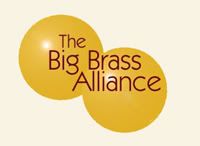Think Again: Drugs
Prohibition has failed—again. Instead of treating the demand for illegal drugs as a market, and addicts as patients, policymakers the world over have boosted the profits of drug lords and fostered narcostates that would frighten Al Capone. Finally, a smarter drug control regime that values reality over rhetoric is rising to replace the “war” on drugs.
-Ethan Nadelmann
“The Global War on Drugs Can Be Won”No, it can’t.
A “drug-free world,” which the United Nations describes as a realistic goal, is no more attainable than an “alcohol-free world”—and no one has talked about that with a straight face since the repeal of Prohibition in the United States in 1933. Yet futile rhetoric about winning a “war on drugs” persists, despite mountains of evidence documenting its moral and ideological bankruptcy. When the U.N. General Assembly Special Session on drugs convened in 1998, it committed to “eliminating or significantly reducing the illicit cultivation of the coca bush, the cannabis plant and the opium poppy by the year 2008” and to “achieving significant and measurable results in the field of demand reduction.” But today, global production and consumption of those drugs are roughly the same as they were a decade ago; meanwhile, many producers have become more efficient, and cocaine and heroin have become purer and cheaper.Link.
It’s always dangerous when rhetoric drives policy—and especially so when “war on drugs” rhetoric leads the public to accept collateral casualties that would never be permissible in civilian law enforcement, much less public health. Politicians still talk of eliminating drugs from the Earth as though their use is a plague on humanity. But drug control is not like disease control, for the simple reason that there’s no popular demand for smallpox or polio. Cannabis and opium have been grown throughout much of the world for millennia. The same is true for coca in Latin America. Methamphetamine and other synthetic drugs can be produced anywhere. Demand for particular illicit drugs waxes and wanes, depending not just on availability but also fads, fashion, culture, and competition from alternative means of stimulation and distraction. The relative harshness of drug laws and the intensity of enforcement matter surprisingly little, except in totalitarian states. After all, rates of illegal drug use in the United States are the same as, or higher than, Europe, despite America’s much more punitive policies.
-
Labels: DARE, drugs, police states, war on drug users














0 Comments:
Post a Comment
<< Home